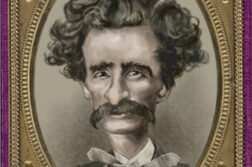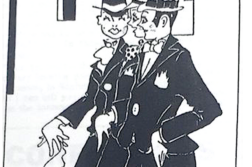LAST AUTUMN, the Center for Lesbian and Gay Studies at the City University of New York hosted the first-ever academic conference on Harry Hay, founder of the Mattachine Society and the Radical Faeries. It was an odd hybrid of a gathering, with many longtime Faeries rubbing shoulders with Marxist theorists and queer academics—a rubbing that occasionally produced friction. To be sure, some of this was of the tempest-in-a-teapot variety. For example, acolytes of Hay were outraged that John D’Emilio closed the conference with a mildly negative assessment of Hay’s impact as an activist, and much hand-wringing ensued. But some of the conflicts were more troubling, revealing sexist, essentialist, and transphobic attitudes on the part not only of some participants but of panelists as well.
At one panel, for example, a panelist nodded affirmatively as transmen were called “fake men” and gender-reassignment surgery was analogized to castration. At another, “LBT” folks were blamed for destroying the purity of “G” communities. At yet another, old wounds from lesbian separatism and the gay ghettos of the 1970s were reopened, as if no progress had been made and no coalitions built in the intervening four decades. It was more than a little unnerving, and as one of the younger presenters (at age 41) at the conference, I sought the solace of other queer scholars wondering what decade we had fallen into.
Harry Hay is not to be blamed for these excesses. And yet, as his thought does contain significant essentialist elements, it is as good a focus as any for situating a critique of naïve gay essentialism, and offering an alternative that attempts to save what is good and liberating about Hay’s ideas.






